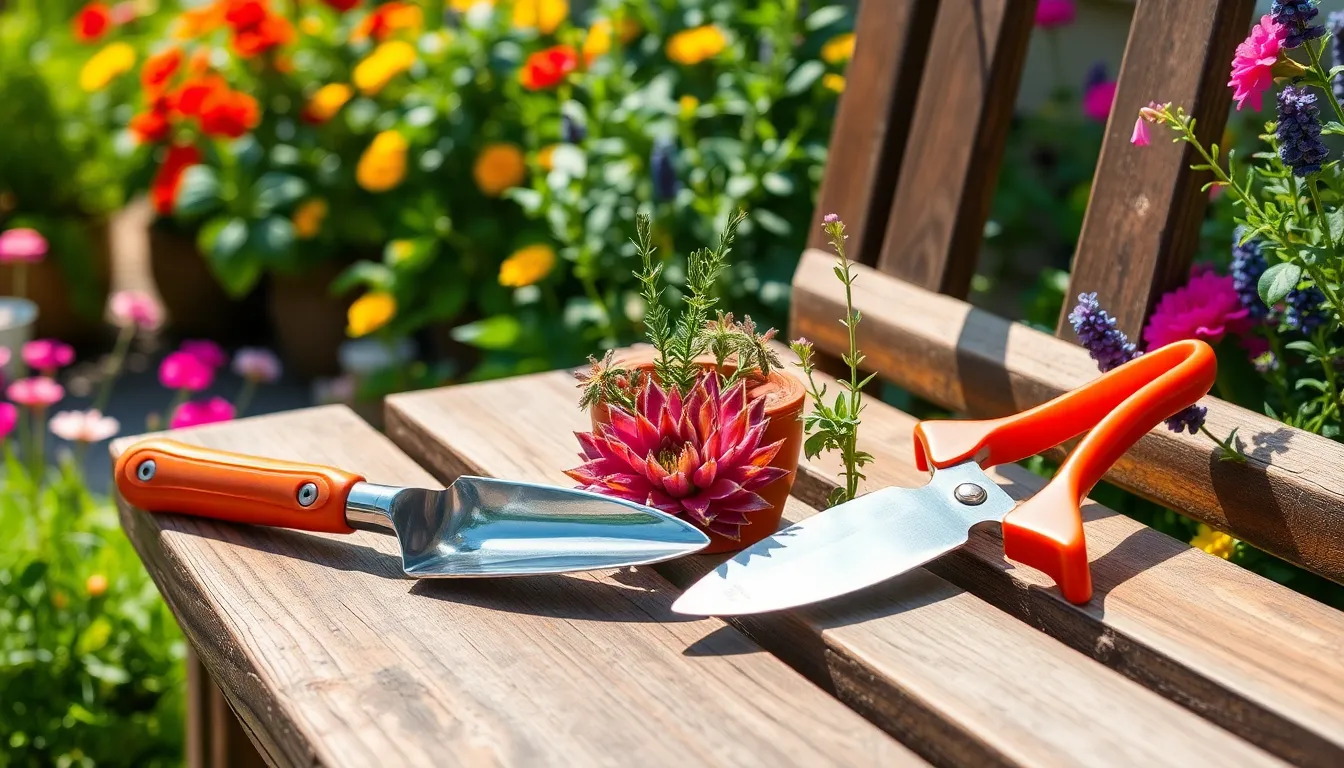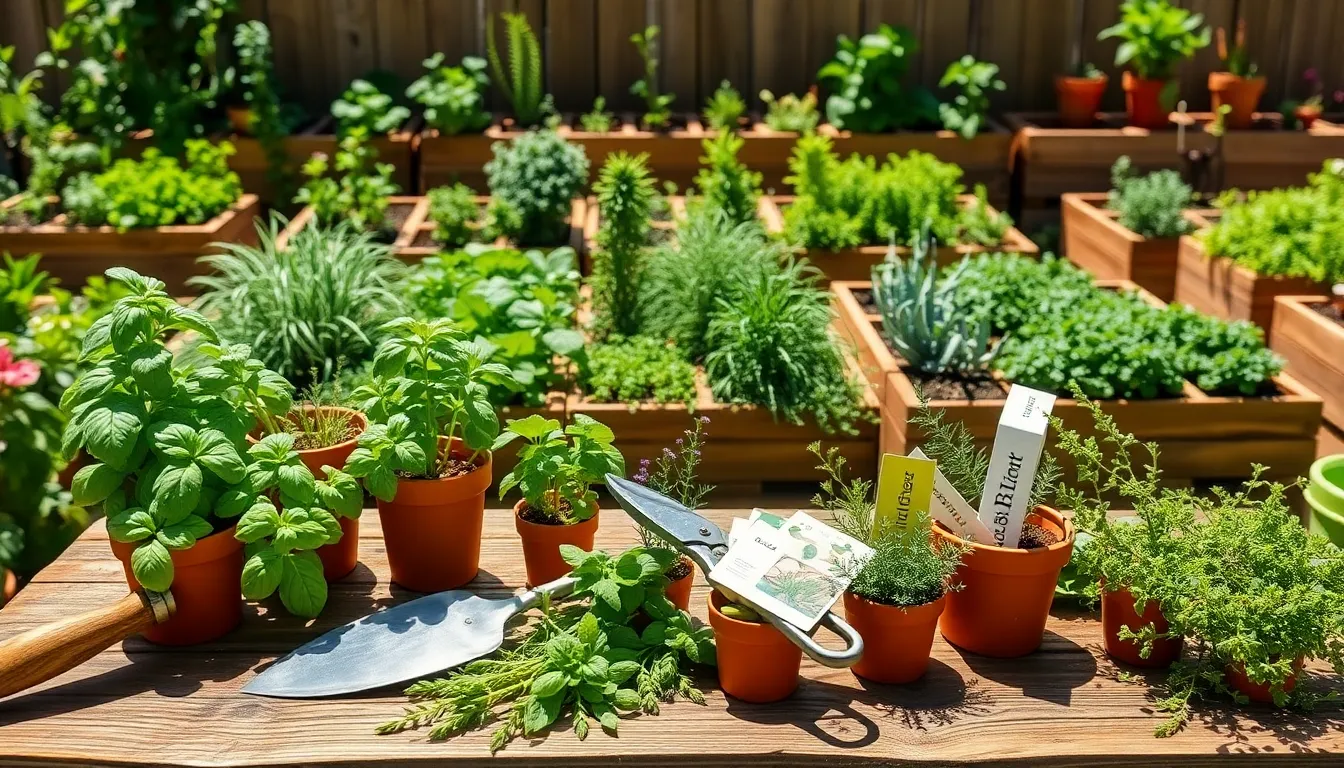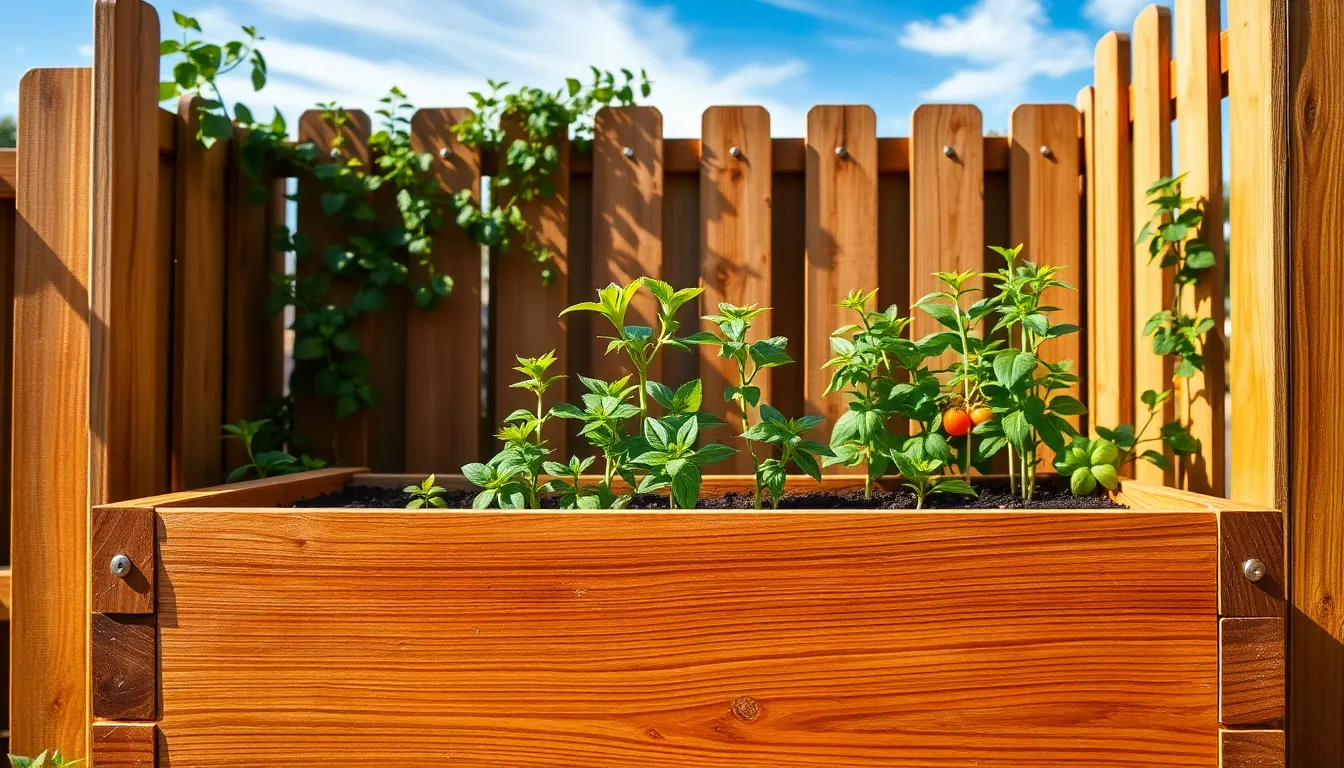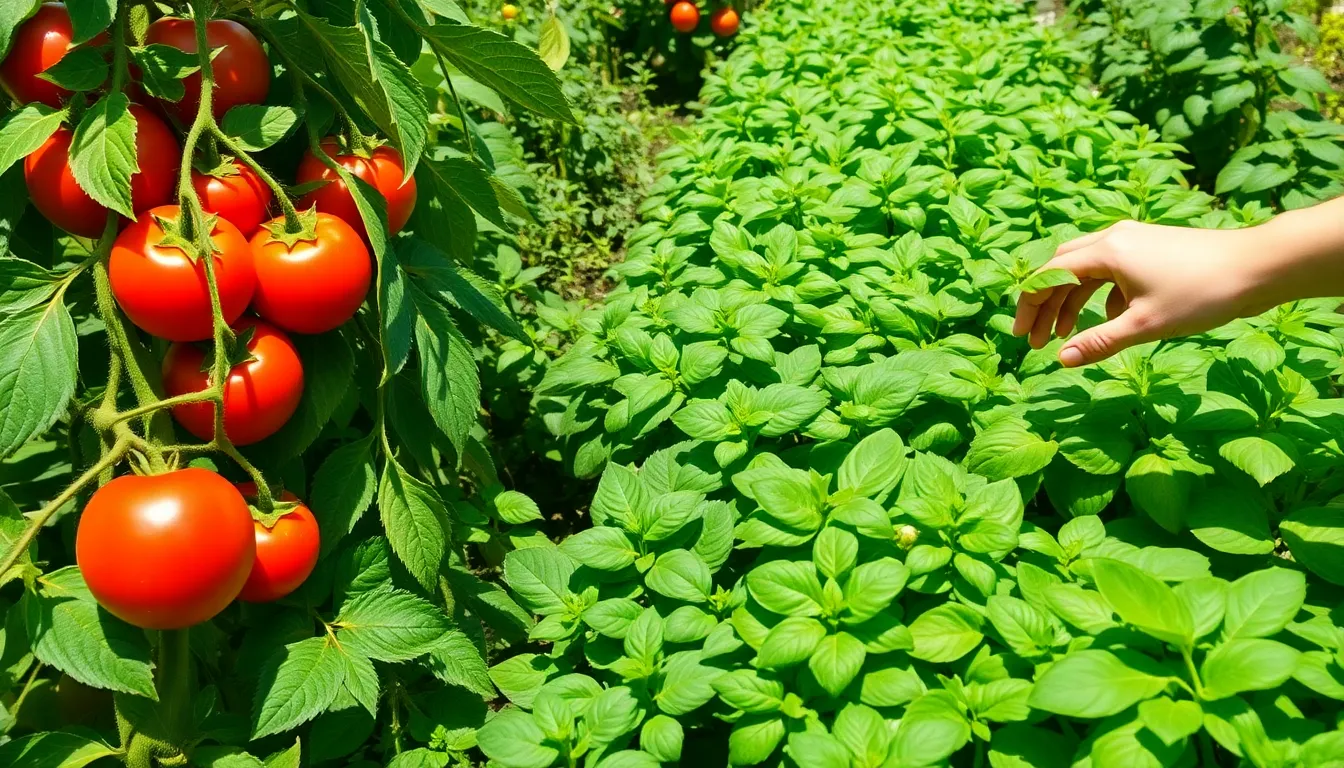Diving into the world of gardening opens up a realm of possibilities, whether you’re planting your first tomato seedling or designing an elaborate flower bed. For both novice and seasoned gardeners, the right tools are like trusted allies, transforming daunting tasks into enjoyable, fulfilling experiences. It’s not just about having tools, though; it’s about having the right ones that fit your needs and style, enabling you to nurture your garden with confidence and joy.
In this article, we’ll explore seven essential garden tools that every gardener should have in their arsenal. From classic favorites to innovative must-haves, these tools will empower you to tackle any gardening challenge with ease. You’ll discover how each tool can enhance your gardening practice, making your time in the garden more efficient and enjoyable. Whether you’re cultivating a lush vegetable patch or a serene flower garden, having these tools at your disposal ensures you’re well-prepared for every season and scenario.
Gardening is a journey of learning and growth, and choosing the right tools is a crucial step in that journey. We aim to equip you with practical insights that cater to both your gardening needs and aspirations, regardless of your level of expertise. By the end of this read, you’ll not only know what tools to keep close at hand but also how they can transform your gardening routine into a more rewarding and delightful pursuit. So, let’s dig in and uncover the essentials that will help your garden—and you—thrive.
Choosing the Perfect Hand Trowel
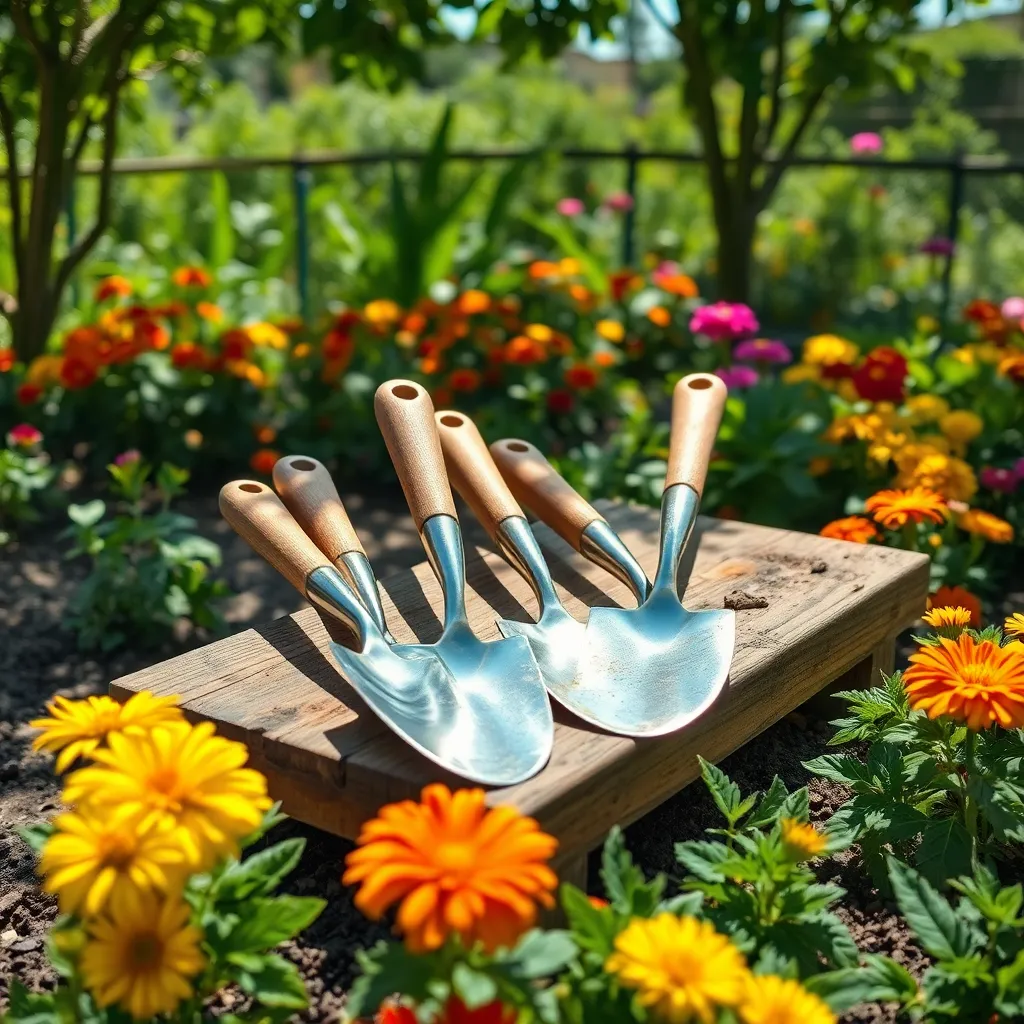
Choosing the right hand trowel can make all the difference in your gardening experience. It’s crucial to select a trowel that fits comfortably in your hand, as this will enhance your control and reduce fatigue during use.
Look for a trowel with a strong, durable blade made from stainless steel or carbon steel, as these materials resist rust and maintain their edge. A comfortable handle is also essential, so consider options with ergonomic grips or cushioned handles for prolonged use.
For beginners, a standard-sized trowel with a pointed blade is ideal for most tasks, such as digging small holes or transplanting seedlings. Advanced gardeners might appreciate specialized trowels with measurements on the blade for precise planting depths or narrow blades for working in tight spaces.
When using your trowel, ensure the soil is moist but not too wet, as this makes digging easier and prevents damaging the roots of nearby plants. Regularly clean and dry your trowel after use to extend its lifespan and maintain its effectiveness.
Mastering with a Garden Fork
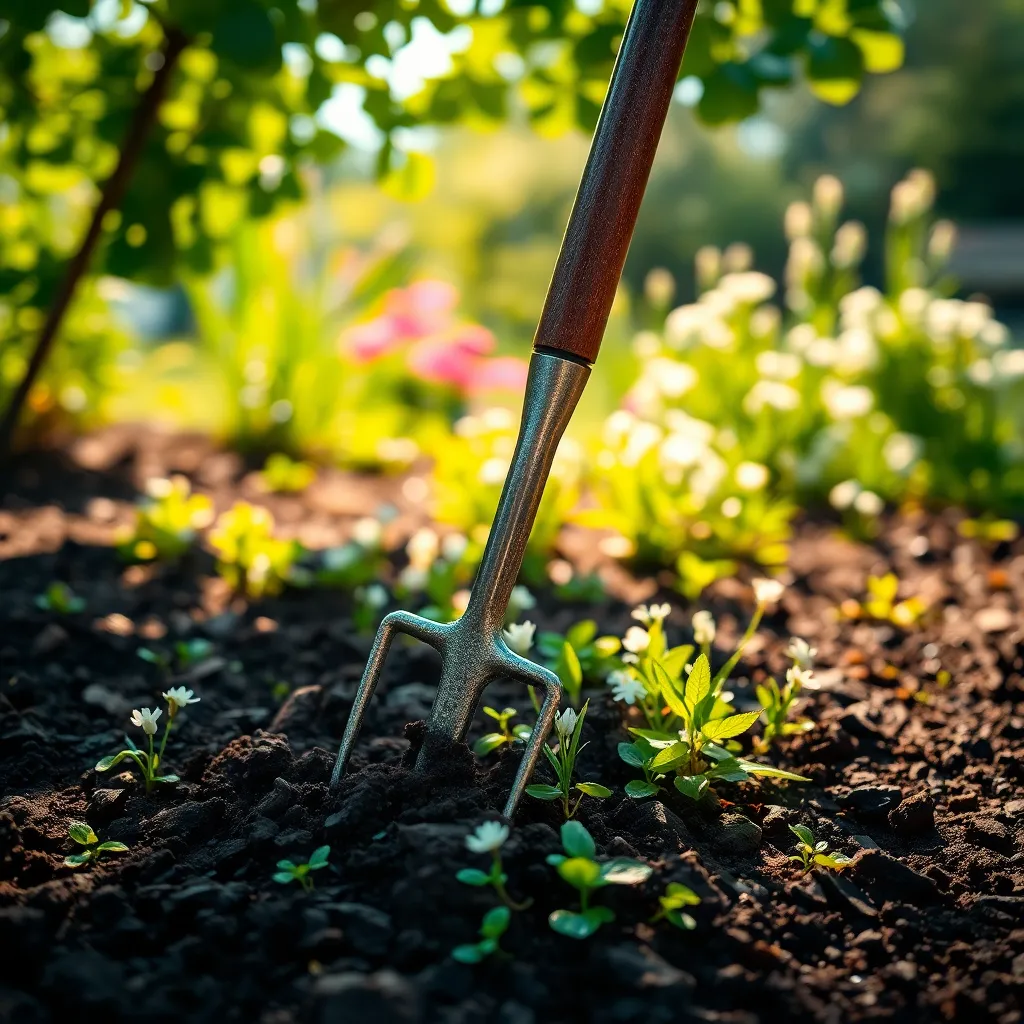
A garden fork is an essential tool for both novice and experienced gardeners, offering versatility in various tasks. It is perfect for turning soil, loosening hard patches, and integrating compost into garden beds, making it a must-have in your gardening toolkit.
When using a garden fork, start by selecting one with sturdy tines and a comfortable handle to ease the strain on your wrists. Stainless steel forks are highly recommended as they are rust-resistant and durable, ensuring longevity and minimal maintenance.
For beginners, mastering the garden fork involves using it to aerate the soil, which promotes healthy root growth and improves water penetration. Simply insert the fork into the ground, lift slightly, and repeat across the area to break up compacted soil without disturbing plant roots.
Advanced gardeners can utilize the garden fork for double digging, which enhances soil fertility and drainage. By working in layers and incorporating organic matter, you can create a rich environment for your plants to thrive.
The Versatility of Pruning Shears
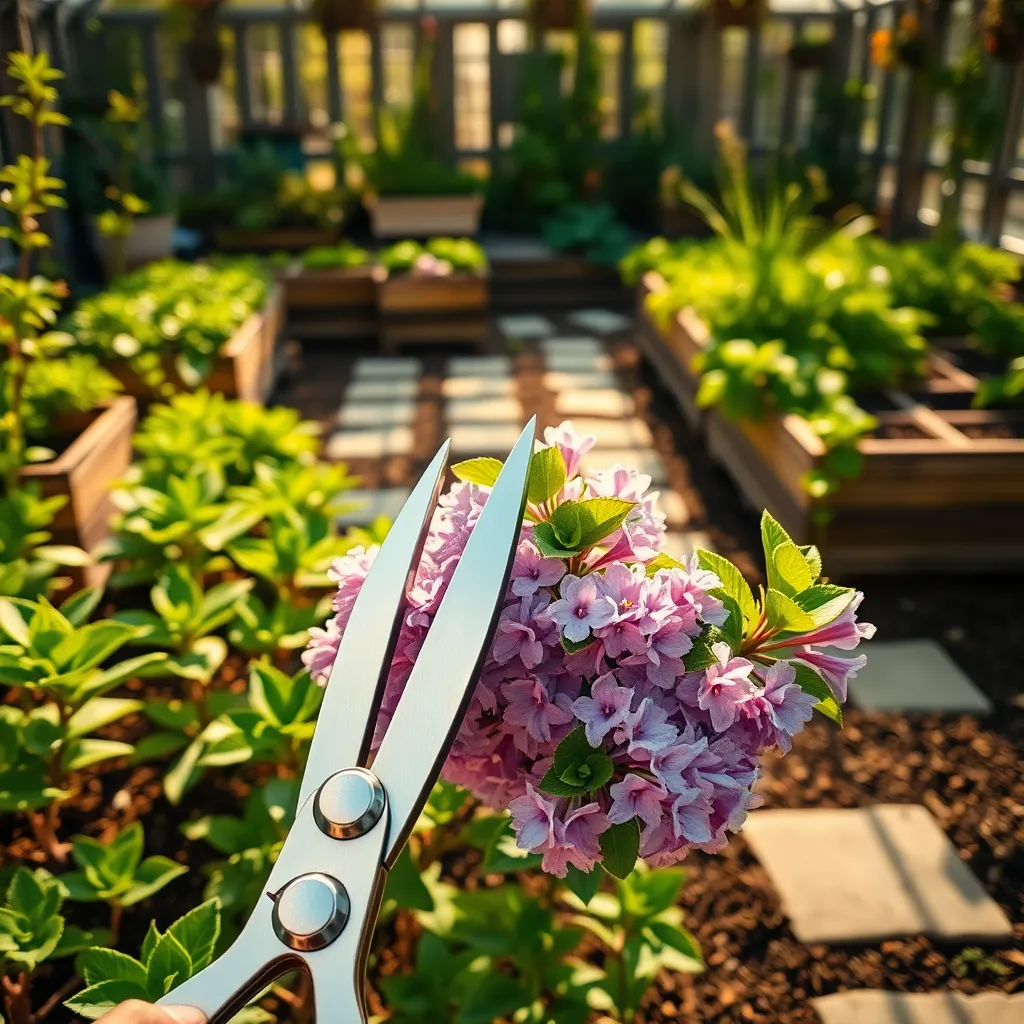
Pruning shears are an indispensable tool in maintaining a healthy and aesthetically pleasing garden. These versatile tools allow you to keep your plants tidy by removing dead or overgrown branches, which promotes healthier growth.
For beginners, it’s crucial to start with a basic pair of bypass shears, which are perfect for most small to medium branches. Bypass shears work like scissors, with two blades passing by each other to make a clean cut that minimizes plant damage.
Experienced gardeners might want to invest in an anvil pruner for tougher stems, as it provides more cutting power. Anvil pruners have a single straight blade that cuts against a flat surface, useful for pruning dead wood or hardier plants.
Regardless of your experience level, always ensure your pruning shears are sharp and clean. Regular maintenance not only prolongs the life of your tools but also prevents the spread of diseases between plants.
Digging Deep with a Spade
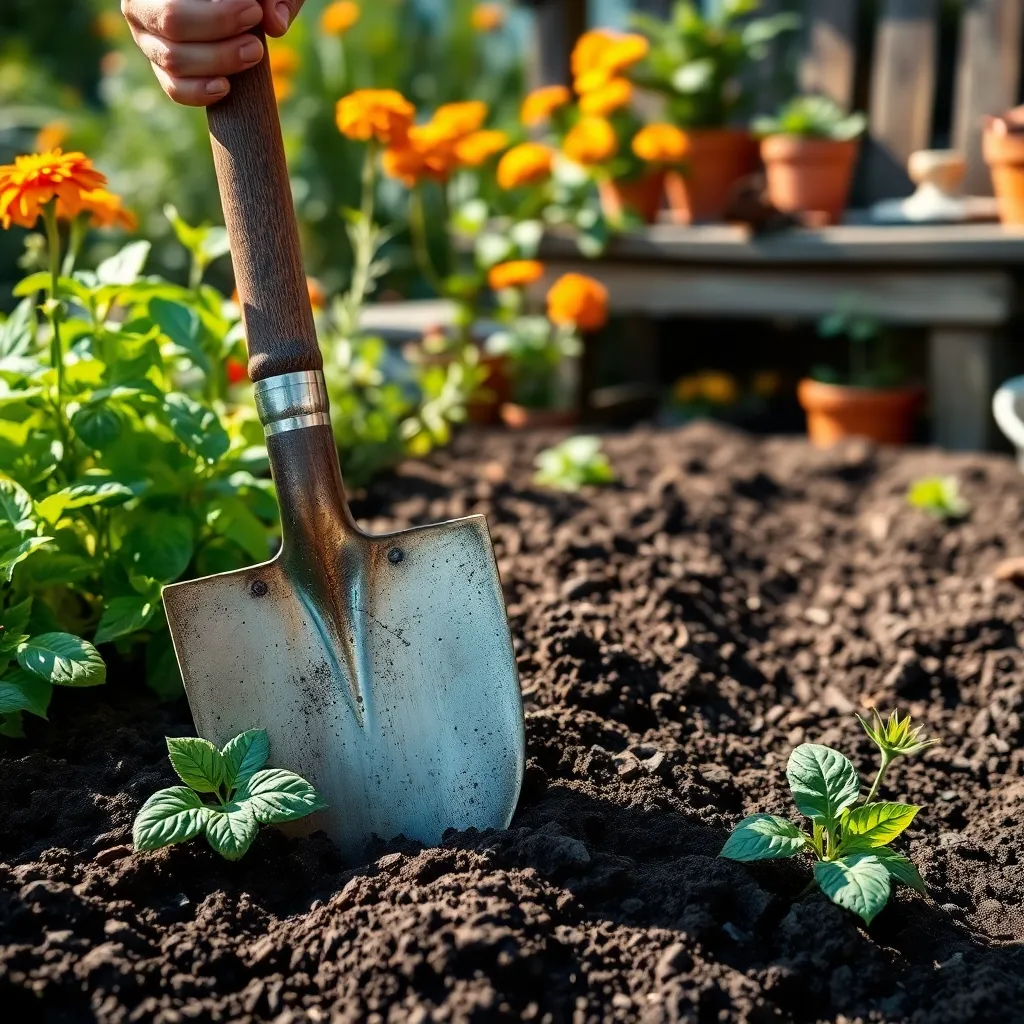
A spade is an essential tool for any gardener, offering the perfect balance between strength and precision. It’s ideal for digging deep into the soil, whether you’re turning over a new garden bed or transplanting larger plants.
When choosing a spade, look for one with a sturdy blade and a comfortable handle, as you’ll be using it frequently. A high-quality spade will save you time and effort by making it easier to penetrate dense, compacted soil.
For beginners, start by using your spade to dig out unwanted weeds and prepare your soil for planting. Ensure your spade is sharp to cut through roots and distribute soil evenly, promoting healthier plant growth.
Advanced gardeners can use a spade for more intricate tasks, such as creating precise planting holes or edging garden beds cleanly. Regularly clean and sharpen your spade to maintain its efficiency and extend its lifespan.
Rake: Essential for Clean Beds
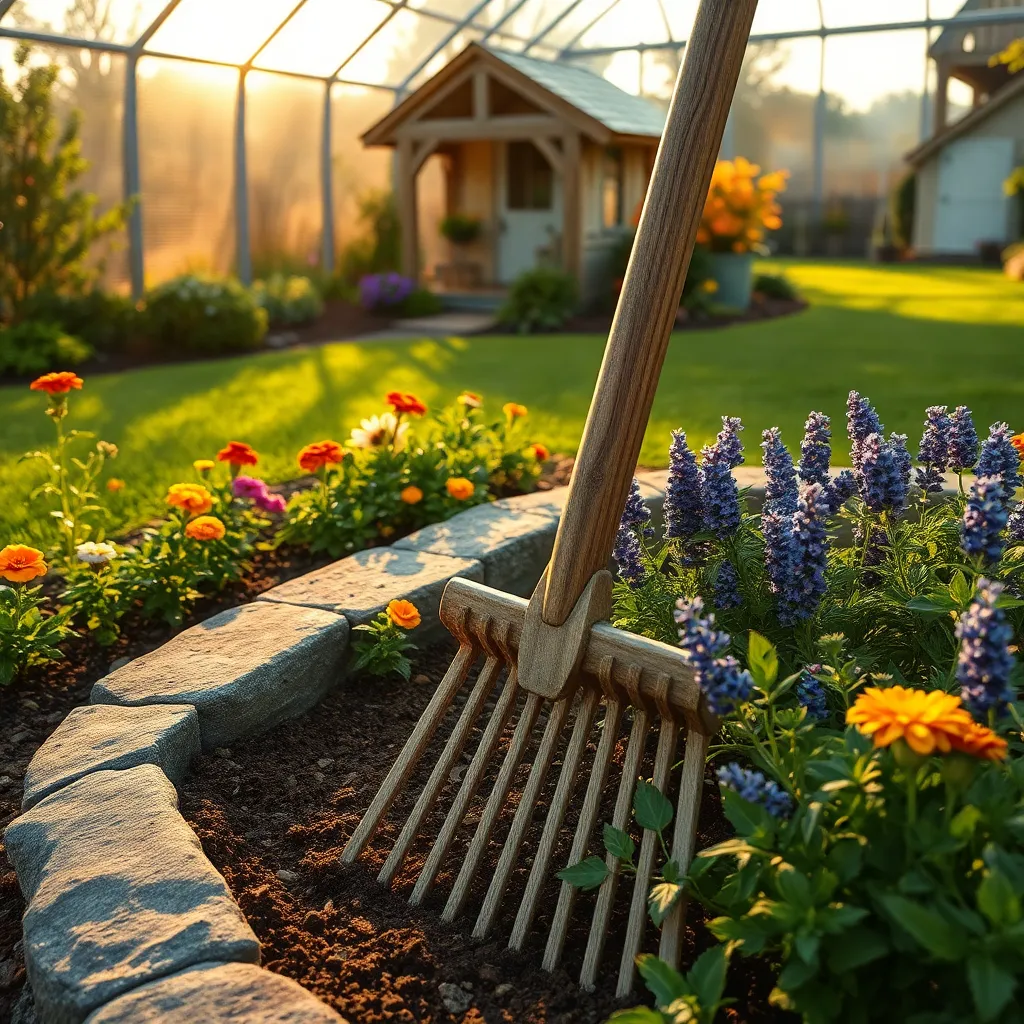
Raking is a crucial task for maintaining clean and tidy garden beds. By regularly removing fallen leaves and debris, you prevent pests and diseases that thrive in decaying matter, keeping your plants healthy and vibrant.
Using a rake designed for garden beds can make the task easier and more efficient. Opt for a lightweight, fan-shaped rake that can easily maneuver around delicate plants and reach into tight corners without damaging stems or roots.
Beginner gardeners should focus on raking during the early morning or late afternoon when plants are less stressed by the sun. Rake gently to avoid disturbing the soil, which can lead to erosion or uprooting of delicate seedlings.
For more advanced gardeners, consider composting the leaves and debris you collect. This not only reduces waste but also provides you with rich, organic fertilizer that can be used to improve soil health and structure.
Watering Cans for Effective Irrigation
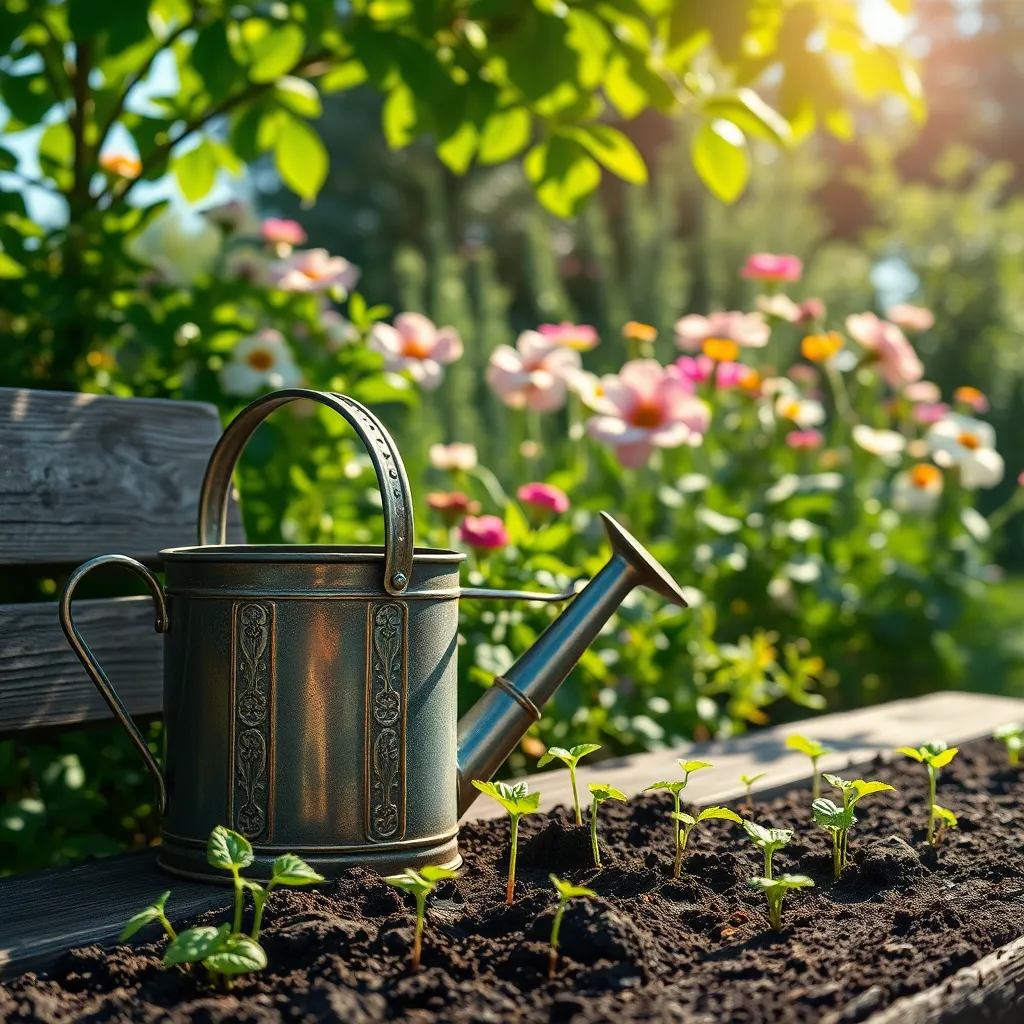
Watering cans are essential tools for delivering precise hydration to your plants. With their spouted design, they allow you to target the base of each plant, minimizing water wastage and preventing foliar diseases.
Beginner gardeners should look for a watering can that holds around 1 to 2 gallons, balancing capacity with ease of handling. Opt for models with a detachable rose attachment, which can be used to gently shower delicate seedlings or removed for a more direct pour.
To ensure effective irrigation, water your plants early in the morning when temperatures are cooler, reducing evaporation. For most garden plants, aim to provide about 1 inch of water per week, adjusting for rainfall and specific needs of plants like succulents, which require less frequent watering.
Advanced gardeners might consider using rainwater collected in barrels to fill their watering cans, offering a sustainable and gentle option for plant irrigation. Additionally, using a long-spouted can allows you to reach plants in the back of dense beds without stepping on the soil, thus preserving its structure.
Gardening Gloves for Hand Protection
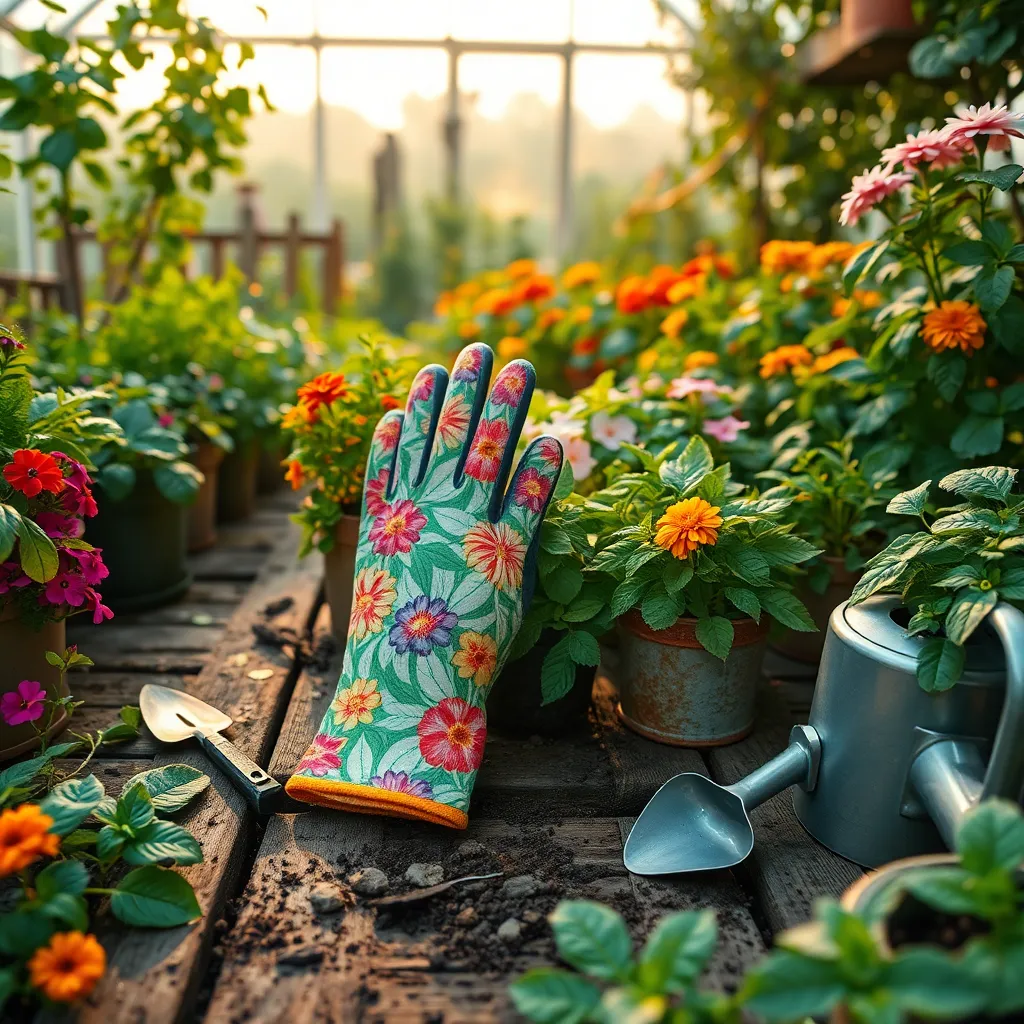
Gardening gloves are an essential tool for protecting your hands from dirt, thorns, and potential injuries. They provide a barrier between your skin and the elements, ensuring you can garden comfortably and safely.
Choosing the right gloves depends on the tasks you plan to undertake. For tasks involving thorny plants like roses, opt for gloves with reinforced fingertips and puncture resistance to prevent injuries.
In addition to basic protection, gloves can offer additional features like grip-enhancing materials. This is especially useful when handling slippery tools or working with wet soil, ensuring tools don’t slip from your grasp.
For those working in various weather conditions, consider gloves with moisture-wicking properties. These keep your hands dry and comfortable, allowing for longer gardening sessions without discomfort.
Conclusion: Growing Success with These Plants
In nurturing the garden of relationships, the right tools are essential. We’ve explored seven key concepts: effective communication, active listening, empathy, trust-building, conflict resolution, quality time, and appreciation. Each of these tools plays a pivotal role in cultivating a thriving partnership. Now, it’s time to take action. Start by selecting one concept to focus on this week—perhaps enhancing your communication skills or dedicating more quality time to your partner.
Remember, relationships, like gardens, flourish with consistent care and attention. Bookmark this article to revisit these tools whenever you feel your relationship needs a little extra nourishment. As you continue to apply these principles, you’ll find that your connections can grow deeper and more resilient.
Looking ahead, imagine a relationship where understanding flows easily and challenges are met with a united front. By investing time and effort now, you’re setting the stage for a future filled with mutual growth and happiness. Take that first step today, and watch as your relationship blossoms beautifully. Save this article as your go-to guide for ongoing relationship success.

